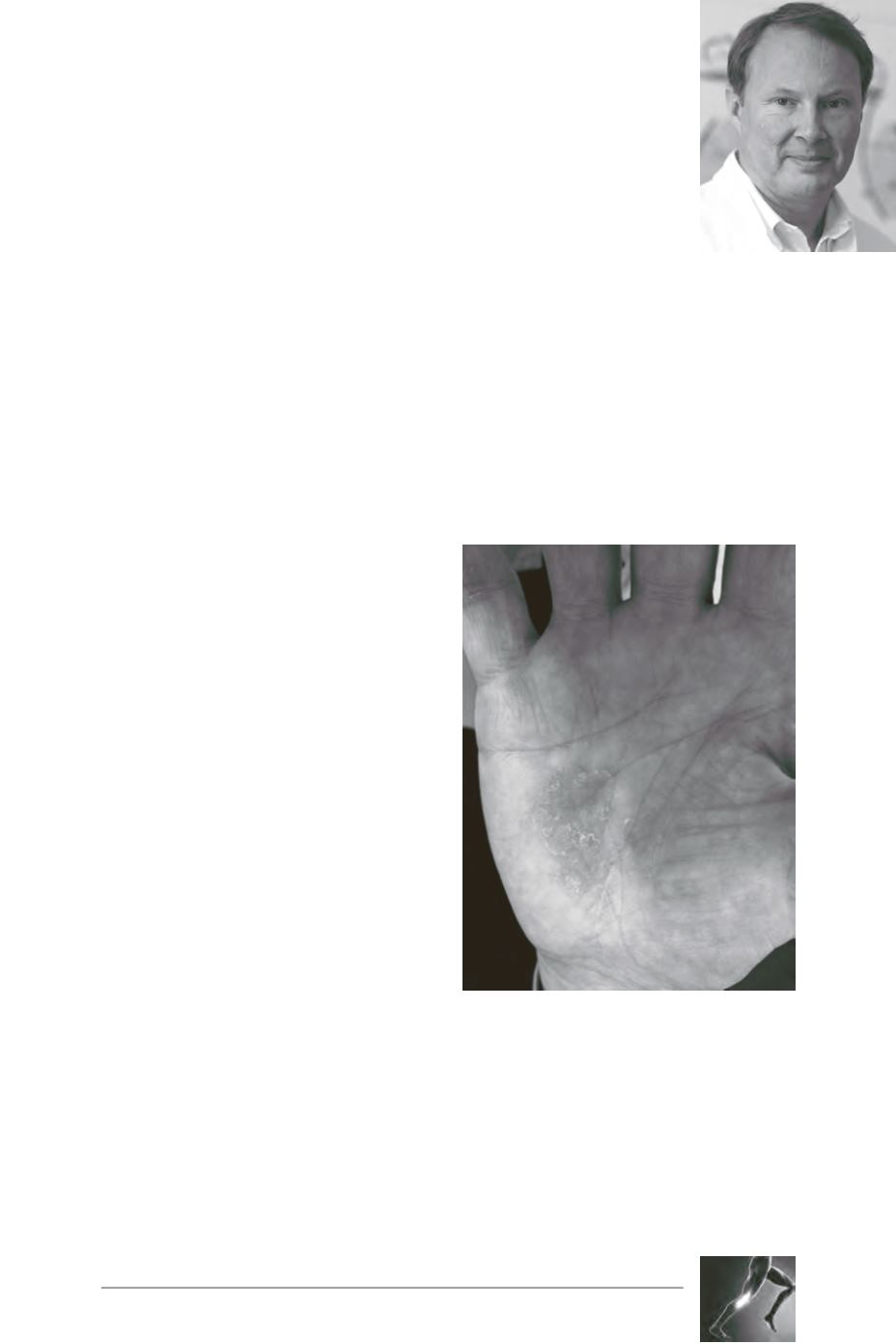

225
Implant-related metal hypersensitivity is a rare
complication in total knee arthroplasty (Hallab
et al.
2001; Niki
et al.
2005; Lützner
et al.
2013; McMaster and Patal 2013, Thomsen
et
al.
2011, Thakur
et al.
2013). In a representative
survey among members of the working group
for joint replacement (AE) in Germany (86.7%
response) we showed that 1,13% of patients
with total knee arthroplasty (TKA) may have
hypersensitivity related problems due to nickel
or cobalt and that one third of them may need
revision surgery (Thomsen
et al.
2013). Thomas
et al.
(2013) had a study of 200 arthroplasty
patients with complaints involving the
prosthesis (130 female, 187 knee and 13 hip
prostheses) and in parallel 100 symptom-free
patients (75 female, 47 knee and 53 hip
prostheses) were investigated.
In the knee arthroplastypatientswith complaints
9.1% showed dental material intolerance,
23.5% atopy, 25.7% CMI, 18.2% metal
allergies, 7.4% gentamicin allergy and 27.8%
positive metal LTT (mostly to Ni). In symptom-
free patients 0% showed dental material
intolerance, 19.1% atopy, 12.8% CMI, 12.8%
metal allergy, 0% gentamicin allergy and 17%
positive metal LTT.
Although it is a rare complication in our center
we see many patients with knee swelling, pain,
reduced range of motion, local (fig. 1) or
generalised dermatitis (Gao
et al.
2011).
In these cases we ask for the complete history,
what kind of implant they have and when the
problems after implantation occur.
Metal allergy in TKA:
does it really exist?
M. Thomsen, P. Thomas, V. Krenn
Fig. 1









